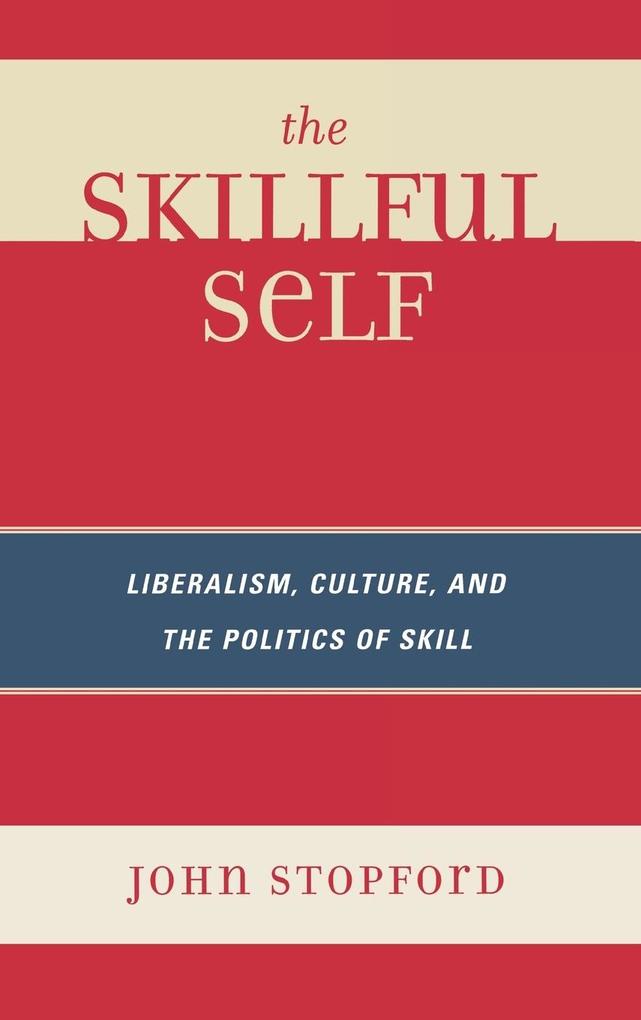
Zustellung: Di, 08.07. - Fr, 11.07.
Versand in 7 Tagen
VersandkostenfreiBestellen & in Filiale abholen:
Developing a political approach to culture that avoids both the pitfalls of neutralism and the perils of perfectionism is among the most urgent tasks facing contemporary liberal theory. Drawing on Rawls's political liberalism as well as recent work by capability theorists and major critics of liberalism, The Skillful Self makes the case for a liberal politics of skill in which the skillful self forms the focus of a nonperfectionist approach to culture and cultural policy.
Inhaltsverzeichnis
Chapter 1 Introduction Part 2 Chapter One. Liberalism, Culture, Cultural Participation Chapter 3 Liberalism and Culture Chapter 4 Cultural Participation Chapter 5 Globalization and Cultural Participation Part 6 Chapter Two. Community, Culture, Autonomy Chapter 7 Community, Justice, Culture Chapter 9 Culture, Context, Autonomy Chapter 10 System, Lifeworld, Expert Chapter 11 The Cultural Conditions of Autonomy Part 12 Chapter Three. Culture and Identity Chapter 13 Politics of Recognition, Politics of Respect Chapter 14 Recognition and the Politics of Hate Chapter 15 The Claims of the Indigenous Part 16 Chapter Four. Education Chapter 17 Education, Diversity, Cultural Competence Chapter 18 Multicultural Reason Chapter 19 Dialog as Reasonableness Part 20 Chapter Five. Skill, Technology, Capability Chapter 21 Skill, the Skillful Self, Deskilling Chapter 22 Liberalism, Technology, Technological Democracy Chapter 23 Capabilities, Resources, Capability Constrained Resourcism Chapter 24 Central Capabilities as Functions of the Skillful Self Part 25 Chapter Six. Politics of Skill Chapter 26 Factors Affecting the Development of the Nonrepresentable Skills Chapter 26 Representable and Nonrepresentable Skills Chapter 27 Conclusion
Produktdetails
Erscheinungsdatum
16. März 2009
Sprache
englisch
Seitenanzahl
252
Autor/Autorin
John Stopford
Verlag/Hersteller
Produktart
gebunden
Gewicht
565 g
Größe (L/B/H)
235/157/19 mm
ISBN
9780739123348
Entdecken Sie mehr
Pressestimmen
Skillful Self is an excellent introduction to many contemporary theoretical debates in political theory. Stopford's strength as an author is to place the reader among the debates of contemporary political theory, to bring the reader along Stopford's dialectical back-and-forth development to his own conclusion. At the same time, the book crucially advances the debate over cultural poltiics by arguing that liberal principals of justice must be rooted in a richer conception of the self than what we find in the homo economicus model. Review Of Metaphysics This is a book or remarkable breadth and depth. It sets out an examination of political philosophy that spans the North Atlantic, and it shows that in the depths of the common conception of government there is an unattended area that gets filled badly if it isn't filled well. Generically it's called culture, and what John Stopford specifically pleads for is a culture of skill. It's all done in a style that is both brisk and incisive. -- Albert Borgmann, The University of Montana
Bewertungen
0 Bewertungen
Es wurden noch keine Bewertungen abgegeben. Schreiben Sie die erste Bewertung zu "Skillful Self" und helfen Sie damit anderen bei der Kaufentscheidung.









